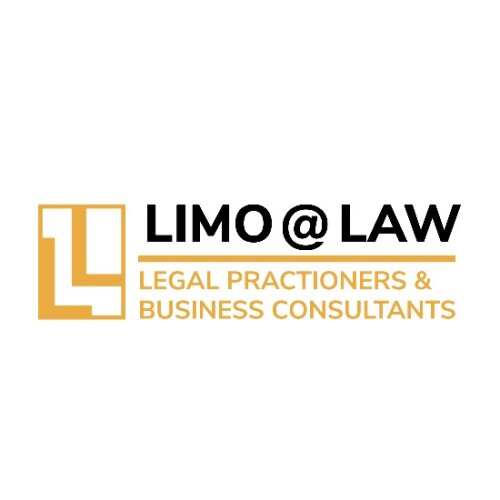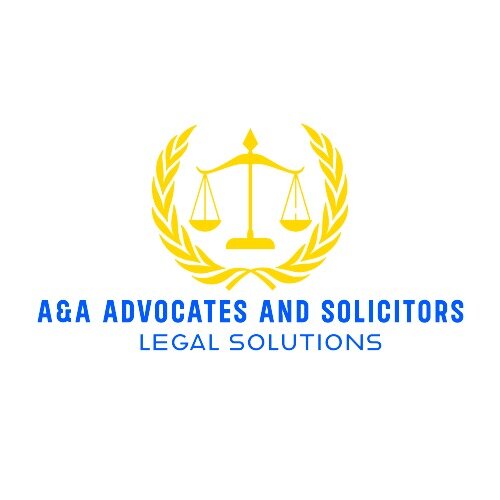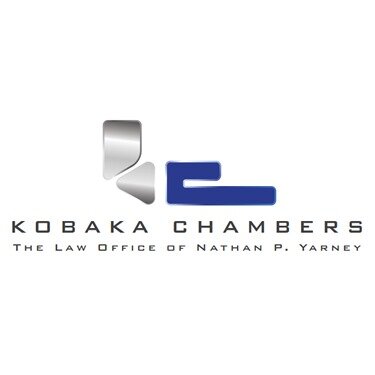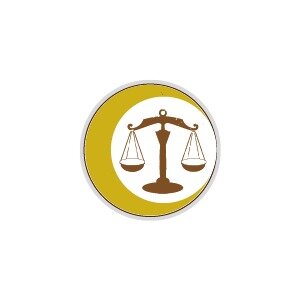Best Family Lawyers in Accra
Share your needs with us, get contacted by law firms.
Free. Takes 2 min.
Free Guide to Hiring a Family Lawyer
List of the best lawyers in Accra, Ghana
Ghana Family Legal Questions answered by Lawyers
Browse our 2 legal questions about Family in Ghana and read the lawyer answers, or ask your own questions for free.
- Is it possible for me to get my 7years old boy back?
- My boy wants to be with me, but the father separated him from me and his siblings. the boy is always sad in class,at home everywhere he is going through a lot emotional trauma, psychological trauma etc.
-
Lawyer answer by Papireddy Associates
Yes, it is possible to reclaim custody of a 7-year-old boy, especially if there is evidence that he is suffering emotional and psychological trauma from being separated from his mother and siblings.Legal Basis for Seeking CustodyIn Indian law, the court’s...
Read full answer - Child custody
- I had a child with someone before getting married and relocating to another country. We both agreed that ge will take care of our daughter while I settle and then come for her. Howevet he changef his mind and now does not allow me to speak to my daughter. What... Read more →
-
Lawyer answer by Al-Mithaq& Associations Law firm
I'll need to gather some key legal information based on your circumstances:Which country are you currently residing in?Laws regarding child custody, parental rights, and cross-border parental disputes vary widely by country.In which country is the father of your child currently...
Read full answer
About Family Law in Accra, Ghana
Family law in Accra, Ghana, deals with legal issues that pertain to family relationships such as marriage, divorce, child care and custody, adoption, and property settlements. The Ghanaian family law is principally governed by the statutes such as the Children's Act, 1998 (Act 560), the Matrimonial Causes Act, 1971 (Act 367), and the Domestic Violence Act, 2007 (Act 732). Customary laws also play a significant role, particularly in matters of marriage, divorce, inheritance, and property rights among the various ethnic groups in Ghana. The implementation of family law may vary depending on whether an individual is subject to statutory or customary law.
Why You May Need a Lawyer
Common situations that may necessitate the assistance of a family lawyer in Accra include navigating the legal process of divorce, resolving child custody and support disputes, drafting and reviewing prenuptial and postnuptial agreements, handling adoption procedures, and dealing with cases of domestic violence. Lawyers also provide crucial guidance on matters pertaining to the legal requirements for marriage, spousal support, and division of marital property. A family lawyer can advocate on your behalf and ensure your rights are protected under the complex interplay of Ghana’s statutory and customary laws.
Local Laws Overview
Key aspects of local laws relevant to family in Accra, Ghana include statutory provisions that regulate marriage, such as the Marriage Act, 1884-1985, which governs the legal requirements for the various types of marriages: ordinance, customary, and Islamic marriages. The Matrimonial Causes Act governs the processes of judicial separation, divorce, and annulment, and sets out the arrangements for alimony and property distribution. For matters involving children, the Children's Act provides for the rights of children, parental duties, child maintenance, and adoption. The Domestic Violence Act serves to protect individuals from domestic abuse and provides mechanisms for obtaining restraining orders. It is important to understand how these laws may apply to individual situations, which could require the guidance of a family law professional.
Frequently Asked Questions
How is child custody determined in Accra?
In Accra, child custody determinations are made according to the best interest of the child principle, which takes into account various factors, such as the child’s welfare, the capability of each parent to provide care, and any history of abuse. The Children’s Act provides the legal framework for such judgments.
Can a marriage be annulled in Ghana?
Yes, a marriage can be annulled in Ghana under certain circumstances stipulated by the Matrimonial Causes Act, such as the incapacity to consummate the marriage, consent obtained by fraud, or if one of the parties was already married at the time of the union.
What are the legal grounds for divorce in Accra?
Legal grounds for divorce include adultery, desertion for at least two years, unreasonable behavior, and living apart for at least three years. The specifics should be discussed with a family lawyer to ensure proper legal action.
Is spousal support always granted during a divorce?
Spousal support, or alimony, is not automatic during a divorce. It is determined based on several factors, including the duration of the marriage, the financial contribution of each spouse, and the earning capacity of the parties involved.
How are property and assets divided in a divorce?
Property and assets are often divided equitably, if not equally, between the spouses upon divorce. The court considers several factors such as each spouse's contribution to the marital property, and any arrangements made by a prenuptial agreement.
What is the process for adoption in Accra?
The process of adoption includes applying through the Department of Social Welfare, attending an interview, undergoing a home study report, and after a mandatory period of bonding with the child, the court can then grant the adoption order.
Are prenuptial agreements legally binding in Ghana?
Prenuptial agreements are recognized and can be legally binding in Ghana, provided they are fair and executed properly according to the law.
Can I obtain a restraining order for domestic violence in Accra?
Yes, victims of domestic violence can obtain a restraining order under the Domestic Violence Act. A lawyer can assist you in the process of obtaining such an order.
How is paternity established in Accra?
Paternity can be established through the recognition of the man as the father by the child’s birth certificate, an acknowledgement of paternity, or through a court order based on evidence such as a DNA test.
Can a foreign national file for divorce in Accra?
Yes, a foreign national can file for divorce in Accra if they meet the residency requirements or if their marriage is legally recognized in Ghana. Legal advice is recommended to navigate the specific requirements for foreigners.
Additional Resources
Those seeking legal advice in family matters can reach out to the Legal Aid Commission, which provides assistance to individuals who require legal services but are unable to afford them. The Department of Social Welfare is also a useful resource for child welfare and adoption services. For cases involving domestic violence, the Domestic Violence and Victim Support Unit (DOVVSU) of the Ghana Police Service can offer support and guidance.
Next Steps
If you require legal assistance in family-related matters in Accra, Ghana, it is advisable to consult with a qualified family lawyer. Start by gathering all relevant documentation and facts related to your case. You should schedule consultation meetings with prospective lawyers to discuss your situation and understand their approach to representing your interests. It’s important to choose a lawyer that you feel comfortable communicating with and who has the expertise to handle your case effectively.
Lawzana helps you find the best lawyers and law firms in Accra through a curated and pre-screened list of qualified legal professionals. Our platform offers rankings and detailed profiles of attorneys and law firms, allowing you to compare based on practice areas, including Family, experience, and client feedback.
Each profile includes a description of the firm's areas of practice, client reviews, team members and partners, year of establishment, spoken languages, office locations, contact information, social media presence, and any published articles or resources. Most firms on our platform speak English and are experienced in both local and international legal matters.
Get a quote from top-rated law firms in Accra, Ghana — quickly, securely, and without unnecessary hassle.
Disclaimer:
The information provided on this page is for general informational purposes only and does not constitute legal advice. While we strive to ensure the accuracy and relevance of the content, legal information may change over time, and interpretations of the law can vary. You should always consult with a qualified legal professional for advice specific to your situation.
We disclaim all liability for actions taken or not taken based on the content of this page. If you believe any information is incorrect or outdated, please contact us, and we will review and update it where appropriate.
Browse family law firms by service in Accra, Ghana
Accra, Ghana Attorneys in related practice areas.

















